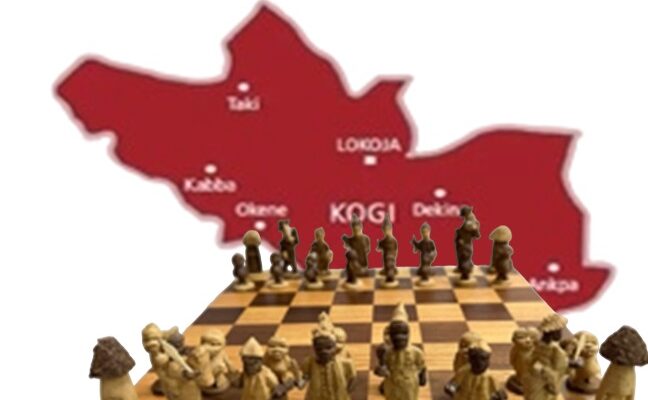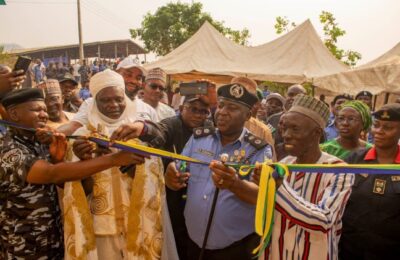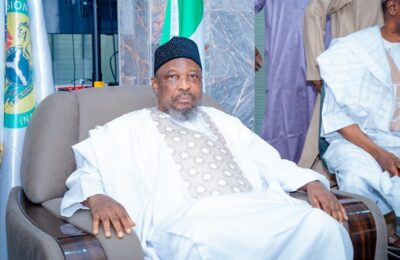Since its birth in 1991, Kogi State has stood as a melting pot of cultures — a microcosm of Nigeria’s rich diversity and deep complexities. Formed from parts of Kwara and Benue States, it was conceived as a bridge between the North and the South, and proudly bears the title of the “Confluence State”, not just for its rivers, but for its people.
Yet, as the elders say, “When three elephants share a small field, the grass must learn to survive.” Beneath the noble dream of unity lies a persistent undercurrent of rivalry among the state’s three dominant ethnic groups: Igala in the East, Ebira in the Central, and Okun in the West.
These groups speak different tongues and dance to different drums — but more importantly, they hold competing visions of leadership, governance, and identity. “A man with a different drumbeat often walks a different path,” and for over three decades, that difference has turned the quest for political power into a tense tug-of-war. The fight for control of the governorship, federal appointments, and resource allocation has transformed ethnic balancing from a noble principle into a relentless battleground.
As the saying goes, “When the soup is sweet, the struggle for the spoon becomes fierce.” In Kogi State, the sweetness of power has made unity a lofty ideal and rivalry an ever-present reality.
From the very dawn of civilian governance in Kogi State, the Igala ethnic group swiftly rose to prominence as the political powerhouse, wielding influence like a seasoned warrior in a familiar battlefield. Their sheer numerical strength gave them a significant edge at the ballot box, securing them a firm grip on the governorship for over two decades. As the elders often say, “When a town has many sons, it seldom loses in the market square of politics.”
At the helm was Prince Abubakar Audu, an Igala royal son, who made history in 1992 as Kogi’s first civilian governor. Like a river that knows its path, he returned again from 1999 to 2003, riding on the renewed waves of Nigeria’s democracy. Following his tenure, the torch was passed to Ibrahim Idris (2003–2011) and later Idris Wada (2012–2015) — both hailing from the Igala-dominated Kogi East and flying the flag of the People’s Democratic Party (PDP).
But as the Igala steered the ship of state, discontent brewed across the waters. Voices from Kogi Central and Kogi West began to murmur, and later to shout — accusing successive administrations of ethnic bias and uneven development. “When the yam is being roasted, every child wants to see the side that faces the fire,” and to many in the Central and Western zones, it seemed the East had the choicest side.
Critics alleged that infrastructural projects flowed like rivers to the East, while the Central and Western districts watched their hopes dry up. As the Yoruba say, “Bi a ba n je oyin, ka mo pe o le ni idan” “Even when we feast on honey, we must not forget it can attract ants.” For all its achievements, the Igala dominance stirred tensions that would later shape the state’s political recalibration.
The sudden death of Prince Abubakar Audu during the 2015 gubernatorial election, just as victory seemed certain, was a political thunderbolt that altered the course of Kogi State’s history. As the saying goes, “When the iroko falls unexpectedly, the forest holds its breath.” In a dramatic twist, Yahaya Bello, an Ebira man from Kogi Central, was picked by the APC to step into the void — a decision that shattered the Igala’s long-standing grip on power and rewrote the rules of succession in the state.
Bello’s emergence was hailed in some quarters as divine intervention, and condemned in others as a breach of political justice. In Kogi East, many felt robbed of a mandate they had already delivered. Yet, as the elders say, “The goat that strays from the herd invites the hyena,” and Bello wasted no time in consolidating power in the Central zone.
By 2019, he had fought his way to a controversial re-election, amid allegations of manipulation, suppression, and voter intimidation, especially from the Igala-dominated East. “When a man builds a house with broken bricks, he should expect a shaky roof,” critics warned, but Bello remained unfazed, determined to entrench his legacy.
In 2023, he achieved the unthinkable by transferring power to another Ebira son, Usman Ododo, under the same APC platform. Like a farmer who plants in his own soil and harvests from it, Bello ensured that Kogi Central retained its grip on the state’s political machinery. “The hand that carries the calabash now chooses who drinks from it,” and for now, that hand remains firmly in the center.
While the Igala and Ebira have taken turns at the helm of power, the Okun people of Kogi West have remained on the sidelines of governorship. Like a bride forever invited to the wedding but never given a groom, the Okun have watched others lead while their own quest for the top seat remains unfulfilled. “The chicken may be present at the feast, but that doesn’t mean it will taste the soup,” goes a wise saying, and so it has been for Kogi West.
Despite producing respected lawmakers, technocrats, and administrators at the national level, the zone continues to suffer political underrepresentation within the state. The people of Okunland, known for their moderation and diplomacy, have grown increasingly vocal, with leaders and civil society groups consistently advocating for power rotation and a restructuring of the political arrangement in Kogi.
Their message is clear and rooted in justice: “When three brothers live in one house, the cooking pot must not favour only one side.” In a state built on the foundation of multi-ethnic unity, they argue, no single zone should monopolize power. Equity, they insist, is not a favor — it is a right.
Ethnicity, Appointments, and State Resources The struggle for power in Kogi State extends far beyond the ballot box. It seeps into the corridors of federal appointments, siting of institutions, and distribution of infrastructure — turning governance into a silent contest of who gets what, when, and how. As the saying goes, “It is not only at the village square that battles are fought; some wars are waged over the cooking pot.”
Under Igala leadership, federal universities and key developmental projects found their way predominantly into the Eastern flank of the state. Critics said the East had become the favored child at the family table. Then came Yahaya Bello’s administration, and the pendulum swung. Appointments into the civil service, boards, and security agencies heavily tilted toward Kogi Central, his own turf. “The drummer always beats louder in front of his own compound,” and Bello made sure the music favored his people.
Meanwhile, the Okun people of Kogi West, long sidelined, have continued to lament their exclusion from strategic state roles. Their frustration has led them to form shifting political alliances — sometimes with the East, other times with the Central — depending on what the season promises. “When the river does not flow to your farm, you dig a canal,” and for the Okun, political survival has meant choosing alliances over isolation.
In Kogi’s power game, appointments and opportunities have become the new currency of influence. As the elders say, “When the meat is shared in secret, the hungry learn to read shadows.”
As the 2027 governorship election draws near, the political winds in Kogi State are shifting once again, and the drums of ambition are beating from all corners. In Kogi East, there is a growing cry to “reclaim the mantle”, fueled by the belief that their numerical strength at the polls still holds the key to victory. “The cow that owns the largest horns often demands the biggest space in the kraal,” and the Igala are poised to assert their long-standing influence.
From the Okun-speaking Kogi West, the tone is different but firm. Their leaders insist that it is finally their turn, pointing to decades of loyalty, patience, and political contribution. As the Yoruba say, “T’ẹni ba sun l’ẹgbẹ odò fun igba, a yẹ ko na omi l’ara” — “He who sleeps beside the river for long deserves to feel water on his skin.” For the Okun, justice delayed must no longer be justice denied.
Meanwhile, in Kogi Central, the Ebira political class is singing the song of continuity and stability, especially under the APC-led administration. With power currently in their hands, they argue that the ship should not change captains mid-sail. “The bird in flight does not stop to change feathers,” they say — a call to stay the course.
Whether these rising tensions will lead to collaboration or confrontation remains uncertain. As the elders warn, “When three hunters chase one antelope, only wisdom prevents a clash.” The months ahead will reveal whether Kogi’s political actors choose consensus or collision, as the clock ticks steadily toward 2027.
In many ways, Kogi State mirrors the larger Nigerian story — a land blessed with cultural wealth and ethnic diversity, yet frequently undermined by the struggle for dominance and identity. As the elders say, “The beauty of the market lies in the variety of voices, but chaos begins when no one listens.” The challenge, therefore, is not in the differences themselves, but in the wisdom used to manage them.
To chart a path toward a more inclusive and harmonious Kogi, the state’s political leaders must do more than make promises under bright campaign lights. They must:
- Commit to genuine power rotation, because “the cooking pot turns so all sides may feel the fire.”
- Ensure fair distribution of resources and appointments, for “if one child eats meat while the others chew bones, the household will not sleep in peace.”
- And above all, foster inter-ethnic cooperation that is rooted in trust and action, not just empty slogans or symbolic handshakes.
The “EBIGO” mantra — Ebira, Igala, Okun unity — introduced under Yahaya Bello’s administration, was a commendable gesture, like “planting a seed in dry season with faith in the coming rain.” But for that seed to grow, it must be watered with justice, nurtured with equity, and protected by sincere political will.
As the Igbo proverb goes, “A man who carries his people along cannot get lost in the forest.” The future of Kogi depends not just on who governs, but how they govern and whom they carry along.
In Conclusion, the future of Kogi State hinges on its ability to rise above the tides of ethnic rivalry and chart a new course rooted in justice, equity, and inclusive governance. As things stand, the ongoing contest among the Igala, Ebira, and Okun remains the defining rhythm of its politics — a triangle of ambition, historical pride, and simmering tension. “When three cocks crow at once, dawn may be delayed,” and in Kogi, each group seeks to lead the chorus.
Yet, a house divided against itself cannot stand tall. “No matter how grand a hut looks from outside, it is the peace inside that makes it a home.” Without deliberate efforts to balance the political equation, the state may continue to exist in name as one, but in reality as three separate interests locked in silent competition.
If Kogi must thrive, its leaders must learn from the wisdom of the land: “When the rope of unity is fraying, each tribe must bring a strand to mend it.” Only then can Kogi truly become not just a Confluence of Rivers, but a confluence of purpose, progress, and people.
– Onimisi Joseph wrote from FCT, Abuja.
Email: isaiahonimisijoseph@gmail.com




